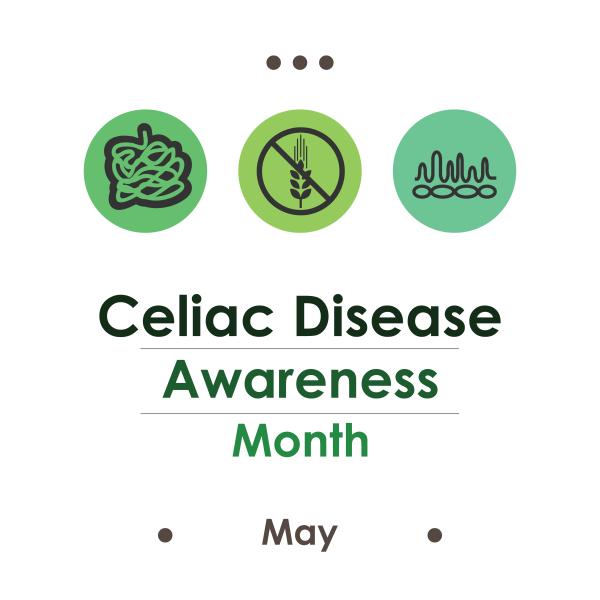May is Celiac Disease Awareness month which makes this the perfect time to focus on some exciting new research in the field.
One of the most interesting questions out there is - what is the cause of celiac disease?
For some time, the genes responsible for the genetic predisposition of celiac disease have been known - they are called HLA-DQ2 or HLA-DQ8. These two genes are, as geneticists like to say, "required but not sufficient." This means that you need to have them in order to get celiac disease, but, having them is not enough.
This point can be seen when you look at the amount of people who have the genetic predisposition (roughly 30-40%) and compare it to the amount of people with celiac disease (only about 1%).
So, what is it that separates the 1% from the other that have the genes but not the disease?
An inter-institutional team with researchers from University of Chicago, Vanderbilt University Medical Center, Harvard Medical School, the University of Pittsburgh School of Medicine and others published new findings last month in Science that move the field one step closer to a possible understanding.
The researchers honed in on two groups of people who have similar amounts of genetic predisposition to celiac disease, but very different amounts of celiac disease in the population - the Finnish and Russian regions of Karelia.
In Finnish Karelia, roughly 2% of the population has celiac disease as opposed to the neighboring Russian Karelia where the number is ten times lower - 0.2%. This sets up an interesting situation that allows the environmental factors that may differ between the two populations to be teased apart, proposing a link to the onset of celiac disease.
One environmental factor, viral infections, have been implicated in celiac disease before with links made to adenovirus, enterovirus, hepatitic C and rotavirus as potential triggers. This group used reovirus, a virus that commonly infects people, to try to uncover the mechanism behind how a viral infection could lead to celiac disease.
First, work in the lab established a biological link between viral infection and celiac disease. The group used two strains of reovirus, T1L and T3D. There are many differences between these two strains, including the fact that strain T1L infects the intestine and T3D does not. The researchers hypothesized that, by converting the T3D virus into a form that did infect the intestine, but leaving the other differences intact, they would be able to tease apart what determinants are important for initiating celiac disease.
They found, through work in mice, that reovirus infection could lead to the activation of T helper 1 cells against dietary gluten and the initiation of celiac disease.
The study showed that infection with the T1L strain had two effects on the mice: it not only stimulated an inflammatory response to gluten, it also suppressed part of the immune system that allows the body to differentiate between self and non-self ensuring that the immune system does not attack our own bodies. This is, in fact, the system that goes awry in the case of an autoimmune disease.
Next, they went into the two populations in Karelia, comparing the amount of anti-reovirus antibodies in people with and without celiac disease. They found that people with celiac disease have higher antibodies against reovirus than the control population (people without celiac disease.)
They concluded that a viral infection (for example, with reovirus) could be one of the environmental links that tips the 1% of the population from only having a genetic predisposition to having a chronic disease.
Although much more research is necessary to prove that reovirus infection is the cause of celiac disease, this paper narrows the gap a bit as the field edges towards an understanding of the cause of this autoimmune disorder. But, don't worry too much about reovirus infection just yet. First of all - the infection is normally innocuous - most people do not know they are infected. Second, this paper is demonstrating, in a general sense, how a virus could lead to autoimmunity and less about reovirus specifically. Most likely, reovirus will not be the only culprit that has a role in the process of initiating celiac disease and other autoimmune disorders.
Source: Bouziat R, et al. Reovirus infection triggers inflammatory responses to dietary antigens and development of celiac disease Science 07 Apr 2017: Vol. 356, Issue 6333, pp. 44-50
DOI: 10.1126/science.aah5298




